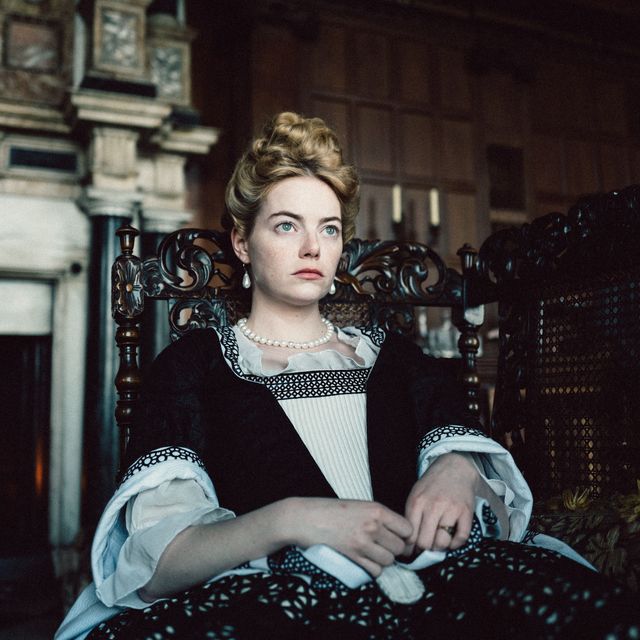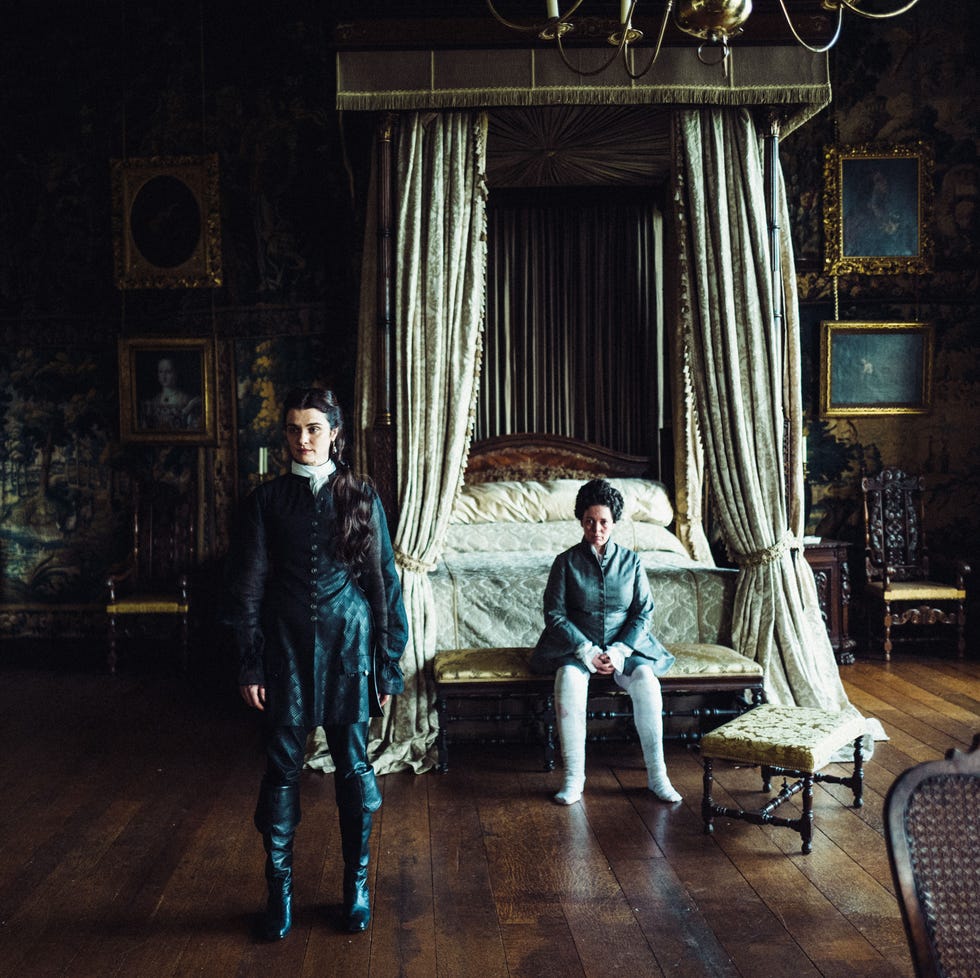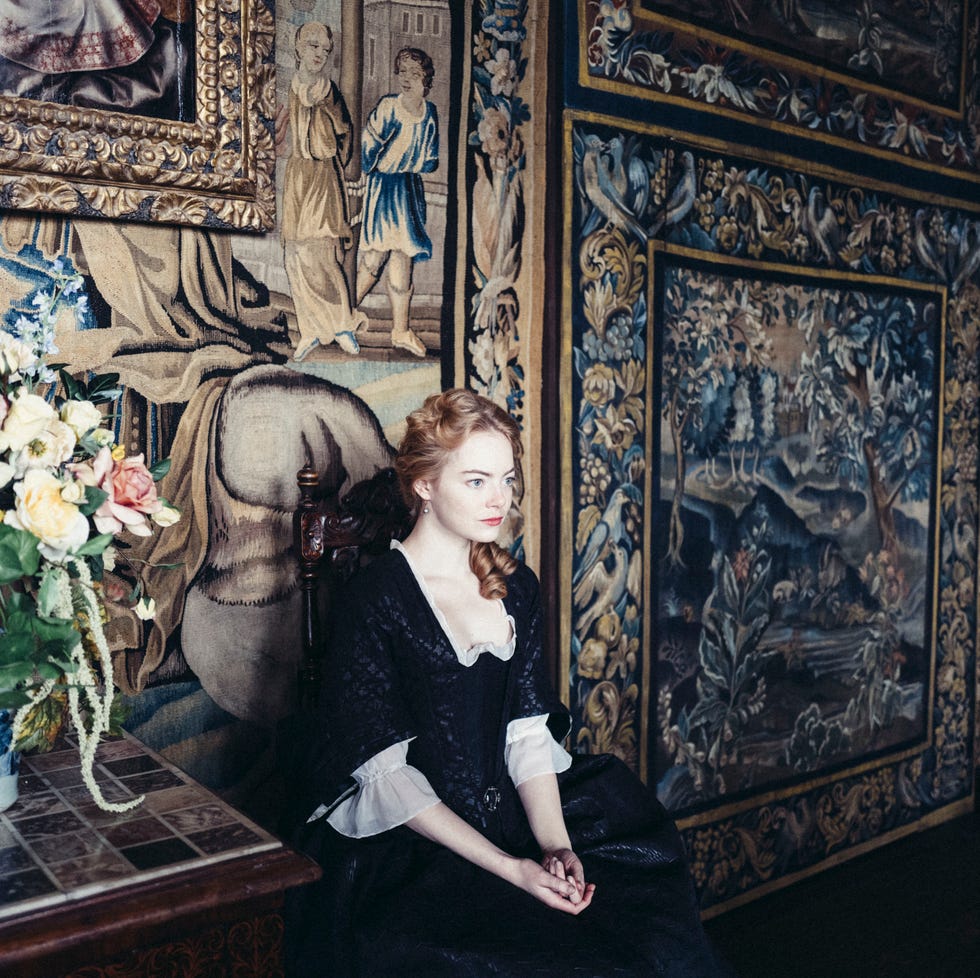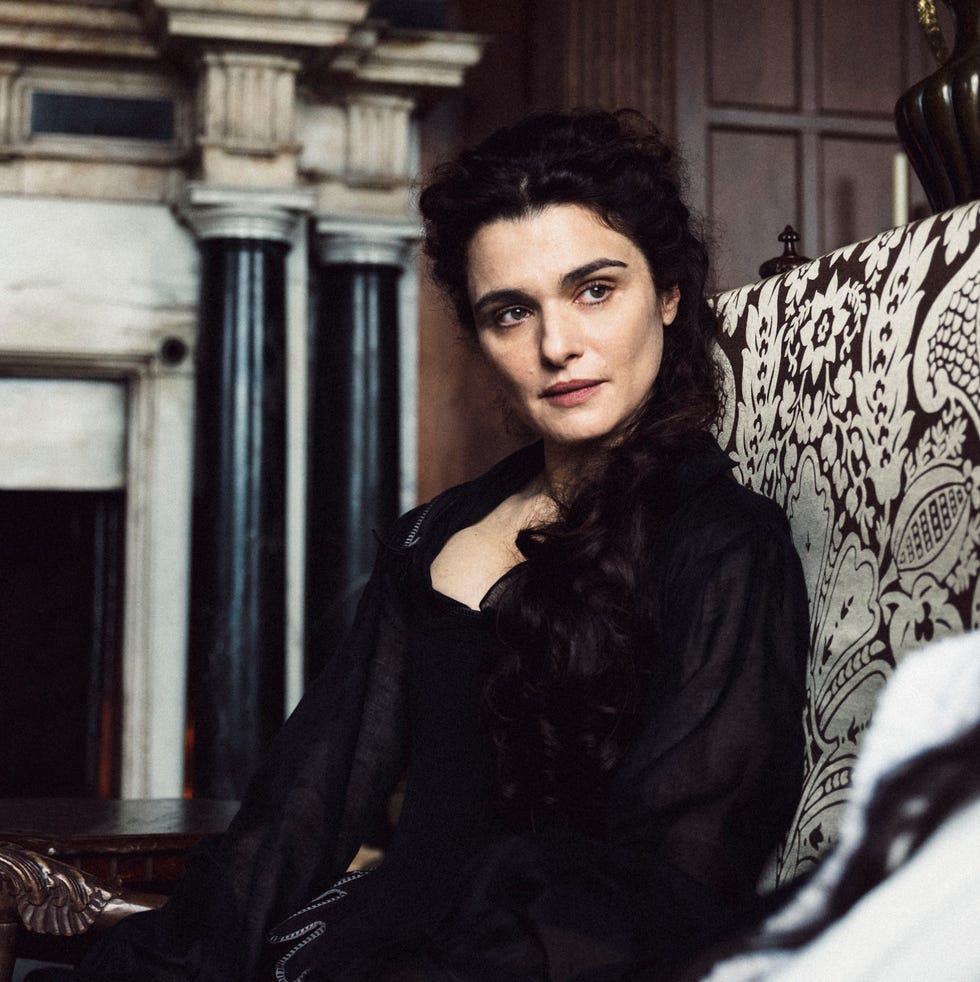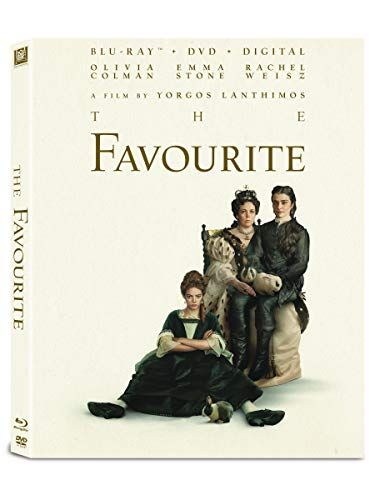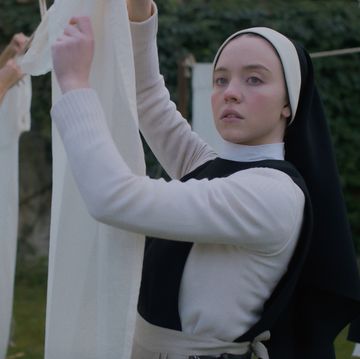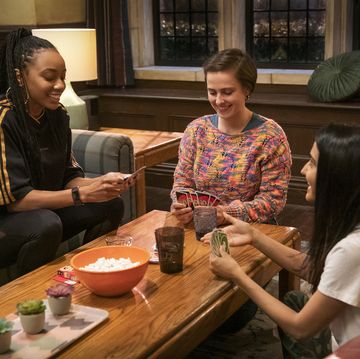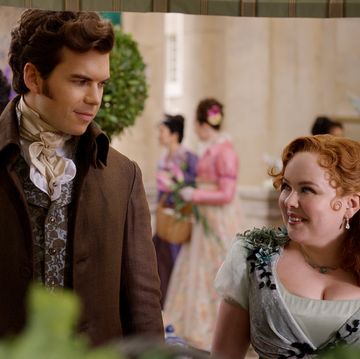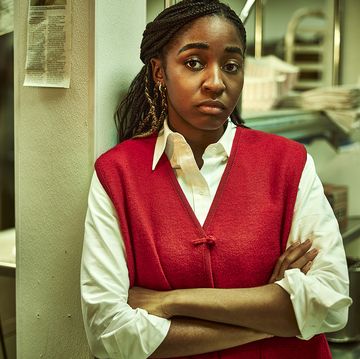With its quick wit and sensual drama, Yorgos Lanthimos' historical comedy The Favourite is anything but your mother's boring period piece.
The Oscar-nominated film (a total of 10 nods) is set during the reign of Queen Anne (Olivia Colman) at the beginning of the 18th century and depicts the rocky relationships between her power-hungry confidantes Sarah Churchill, Duchess of Marlborough (Rachel Weisz) and the duchess’s cousin, Abigail Masham (Emma Stone).
Ultimately, both women connive their way to the top, competing to becoming the queen's "favourite." The movie is filled with hilarious hijinks, scheming of the highest order, and plenty of royal tomfoolery.
The best part? It's all based on a true story—but, per Lanthimos himself, some parts of the film are accurate, and some aren't. Here's what really happened in Queen Anne's court.
Queen Anne was drawn to Sarah Churchill's "vibrancy and exuberance."
Anne met Sarah Jennings, a lady-in-waiting to her stepmother Mary of Modena, when they were young girls in the court of Anne’s uncle, King Charles II. Their friendship grew after Sarah married John Churchill and Anne married Prince George of Denmark in 1683.
Anne found Sarah's "vibrancy and exuberance" to be "supremely attractive qualities," biographer Anne Somerset writes in Queen Anne: The Politics of Passion. “Despite the fact that their personalities could hardly have been more different, Anne found herself irresistibly drawn to this self-assured and dynamic woman."
When Anne was named queen, she made Sarah the Duchess of Marlborough and granted her a pension from Parliament. She felt so strongly about their friendship that she even gave them fake names (Anne was Mrs. Morley and Sarah was Mrs. Freeman) so that the pair could be of equal ranking.
During Anne's reign, Sarah wielded massive political influence over the queen, who, according to Somerset, was not well versed on matters of the state. She also ran the queen's household. While Sarah was fiercely loyal to her friend, Anne eventually grew tired of her domineering ways—and turned to the softer Abigail for companionship.
Abigail Masham became close to Queen Anne while working as her maid.
Sarah brought Abigail to Kensington Palace in 1704 to work as a bedchamber maid. Her duties included dressing the queen in the morning and bringing her hot chocolate. Anne began to favor Abigail's compassionate and gentle way of speaking to her over Sarah's blunt, often harsh, nature.
When Abigail secretly married Samuel Masham, a soldier and courtier, Sarah was shocked to learn that the queen had given Abigail a dowry from the privy purse, of which Sarah was the keeper.
She considered this an act of betrayal and vowed to get rid of Abigail.
Abigail Masham and Sarah Churchill had a major falling out over Queen Anne.
As Sarah felt her friendship with the queen slip away—and thus, her power diminish—she desperately attempted to regain favor by ousting Abigail. She blackmailed her and even spread rumors that she was in a sexual relationship with the queen.
As Vanity Fair reports, the evidence is in a 1707 ballad written by a close friend of Sarah’s, Whig politician Arthur Mainwaring, which she passed around the palace:
When as Queen Anne of great renown / Great Britain’s sceptre swayed / Beside the Church she dearly loved / A dirty chambermaid
O Abigail that was her name / She starched and stitched full well / But how she pierced this royal heart / No mortal man can tell
However for sweet service done / And causes of great weight / Her royal mistress made her, Oh! / A minister of state
Her secretary she was not / Because she could not write / But had the conduct and the care / Of some dark deeds at night
The insinuation in the ballad that Anne and Abigail committed “dark deeds at night” was unlikely. "Anne was worn out by childbearing and in dreadful pain for much of the time, and in view of her manifold infirmities it requires a strong effort of the imagination to conceive of her being brought by Abigail to a state of sensual arousal," Somerset explains. "Her famed prudery, and her strong sense of Christian morality, makes it all the more unlikely her relationship with Abigail carried a carnal element."
Ultimately, there's no real evidence to confirm that the queen and her companions had sexual relationships.
"There wasn't a radical separation between what we recognize as sexual intimacy and the other kinds of bodily intimacy with which people lived at the time, particularly for elite people, who had women who literally undressed them," Columbia professor Julie Crawford told The Cut. "Sexual intimacy was not seen somehow as radically different from other forms of intimacy or bed-sharing, or the care of bodies that happened at the time, unless it had the potential to rupture a hymen or make a baby."
The queen's friendship with Sarah ended after she attempted to sabotage Abigail. According to Somerset, Anne wrote to Sarah's husband, asking she "leave off teasing & tormenting me and behave herself with the decency she ought both to her friend and Queen."
Sarah, who lived to be 84, published a memoir titled An Account of the Conduct of the Dowager Duchess of Marlborough, from her First Coming to Court to the Year 1710. In it, she rationalized her behavior, writing, “[W]hen I first became this high favourite, I laid it down for a maxim, that flattery was falsehood to my trust, and ingratitude to my dearest friend.”
